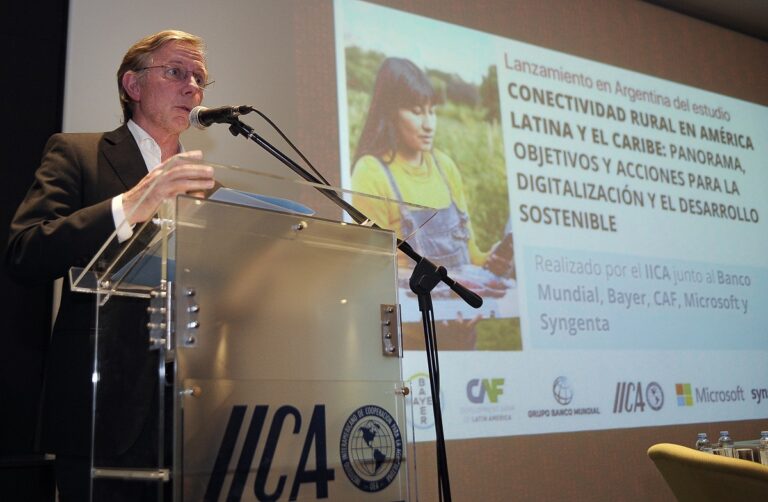
April 19, 2023
More than 900 people tuned into the live broadcast of the launch event, which was carried out in a packed auditorium in Buenos Aires, Argentina. In attendance were Juan José Bahillo, Secretary of Agriculture, Livestock and Fisheries of that country; Jorge Neme, Secretary of Development Planning and Federal Competitiveness of the Ministry of the Economy; Gustavo Martínez Pandiani, Undersecretary for Latin American and Caribbean Affairs of the Ministry of Foreign Affairs; and Gustavo López, Vice President of the National Communications Entity (ENACOM).
Tiempo de lectura: 3mins
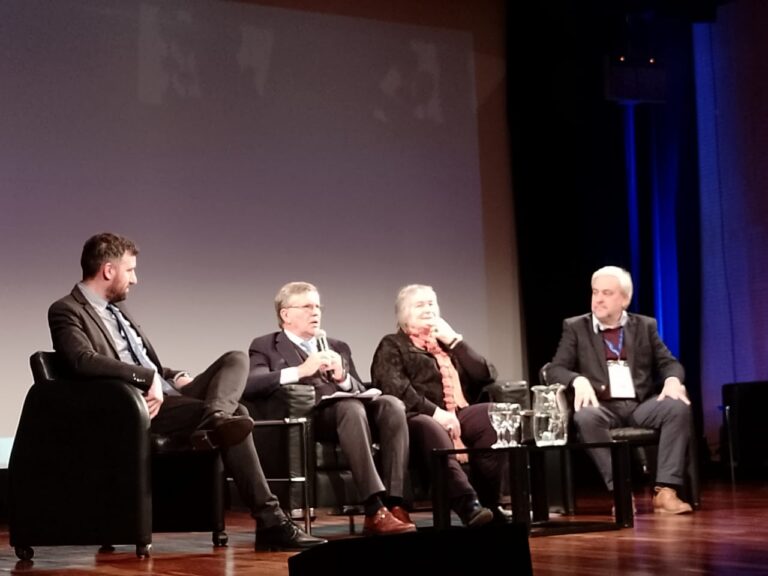
April 19, 2023
The three working days were designed to improve participants’ knowledge of electronic phytosanitary certification; increase the participation of countries in the region; exchange information among countries; promote networks of experts and identify areas for cooperation.
Tiempo de lectura: 3mins
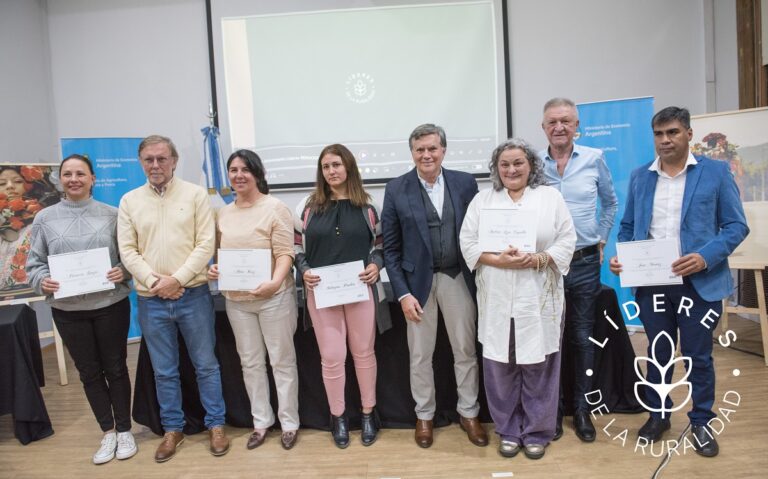
April 18, 2023
The awardees were Patricia Gorza, Andrea Izzo Capella and Milagros Paulón, from central Argentina’s La Pampa region—considered one of the world’s primary food producing areas—along with José Muñoz and Alina Ruiz, who live and work in northern Argentina.
Tiempo de lectura: 3mins
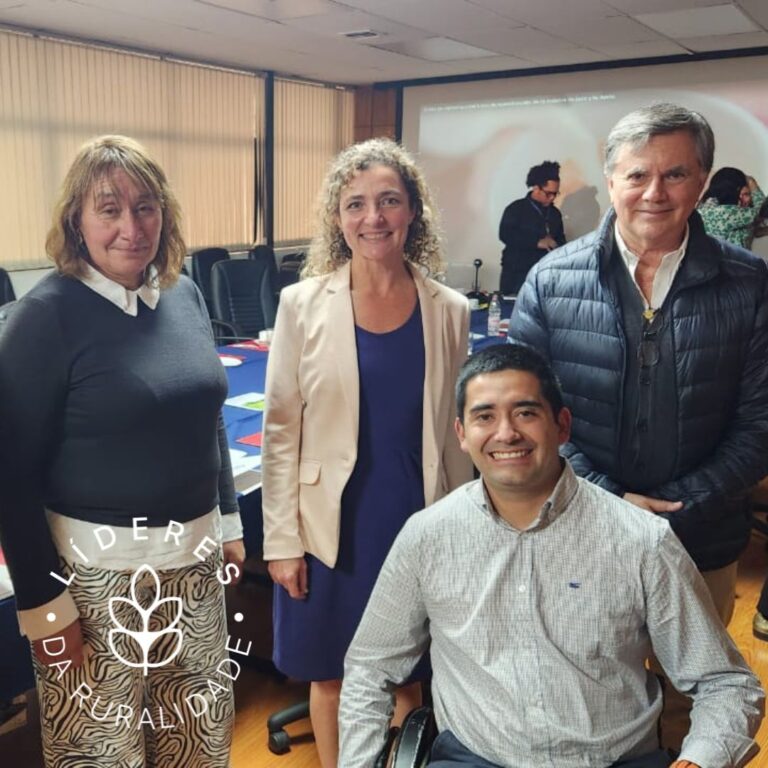
April 17, 2023
The Leaders of Rurality award pays tribute to those who are playing a unique dual role: guaranteeing food and nutrition security, by producing under all circumstances, as well as protecting the biodiversity of the planet. It also emphasizes their capacity to be positive role models in rural areas of the region.
Tiempo de lectura: 3mins
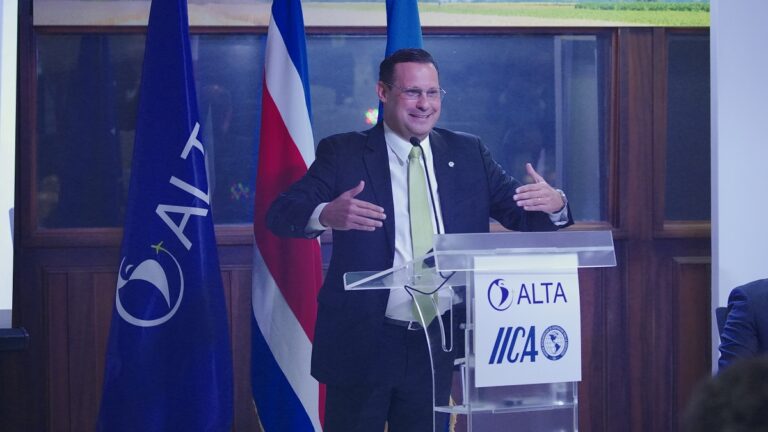
March 31, 2023
This was one of the ideas expressed by the CEO of the Latin American and Caribbean Air Transport Association (ALTA), José Ricardo Botelho, at the Pan-American Liquid Biofuels Summit held at the Inter-American Institute for Cooperation on Agriculture (IICA) in Costa Rica.
Tiempo de lectura: 3mins
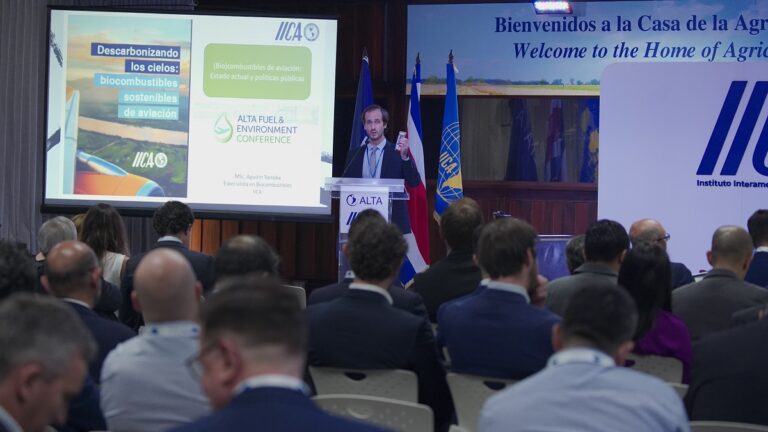
March 30, 2023
This is the conclusion of the document entitled “Decarbonizing the skies: Sustainable aviation biofuels” presented by IICA at the Pan-American Liquid Biofuels Summit.
Tiempo de lectura: 3mins
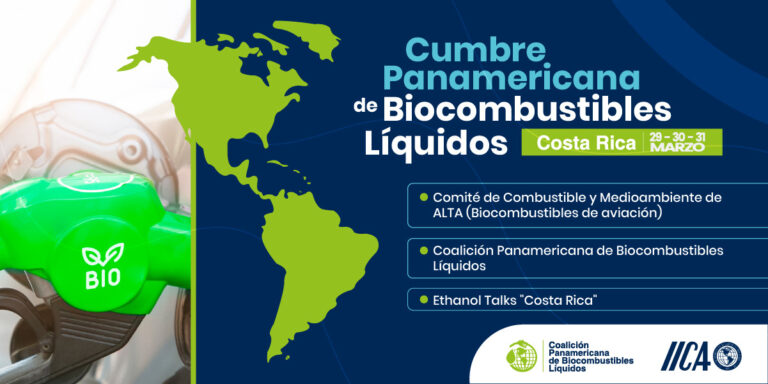
March 27, 2023
The meeting at IICA Headquarters in Costa Rica will be held from 29 to 31 March and will include a conference with the region’s main airlines on fuels and the environment and a seminar entitled “Sustainable Mobility: Ethanol Talks Costa Rica”.
Tiempo de lectura: 3mins
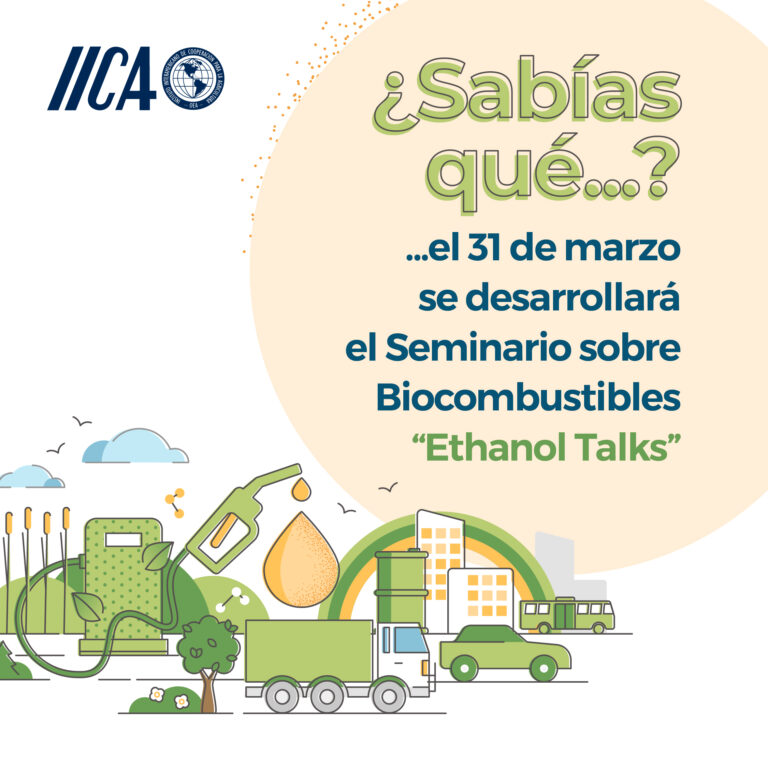
March 24, 2023
Ethanol Talks, the high-level event organized by the Brazilian government and biofuel industry, has previously been held in Brazil, Argentina, Guatemala and India. The Costa Rica edition will be on 31 March.
Tiempo de lectura: 3mins
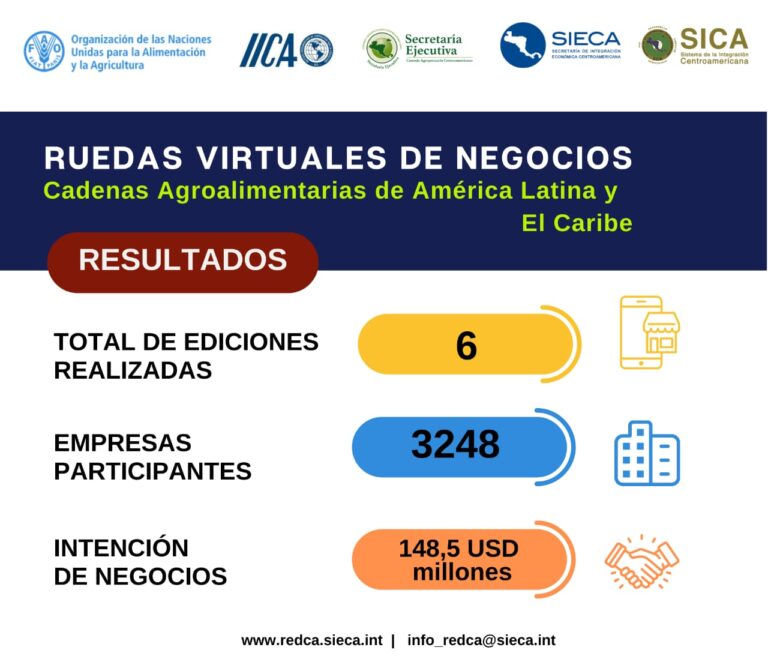
March 14, 2023
Virtual business roundtables have promoted the sale of agrifood products and services from Central America and the Dominican Republic to the rest of the world.
Tiempo de lectura: 3mins